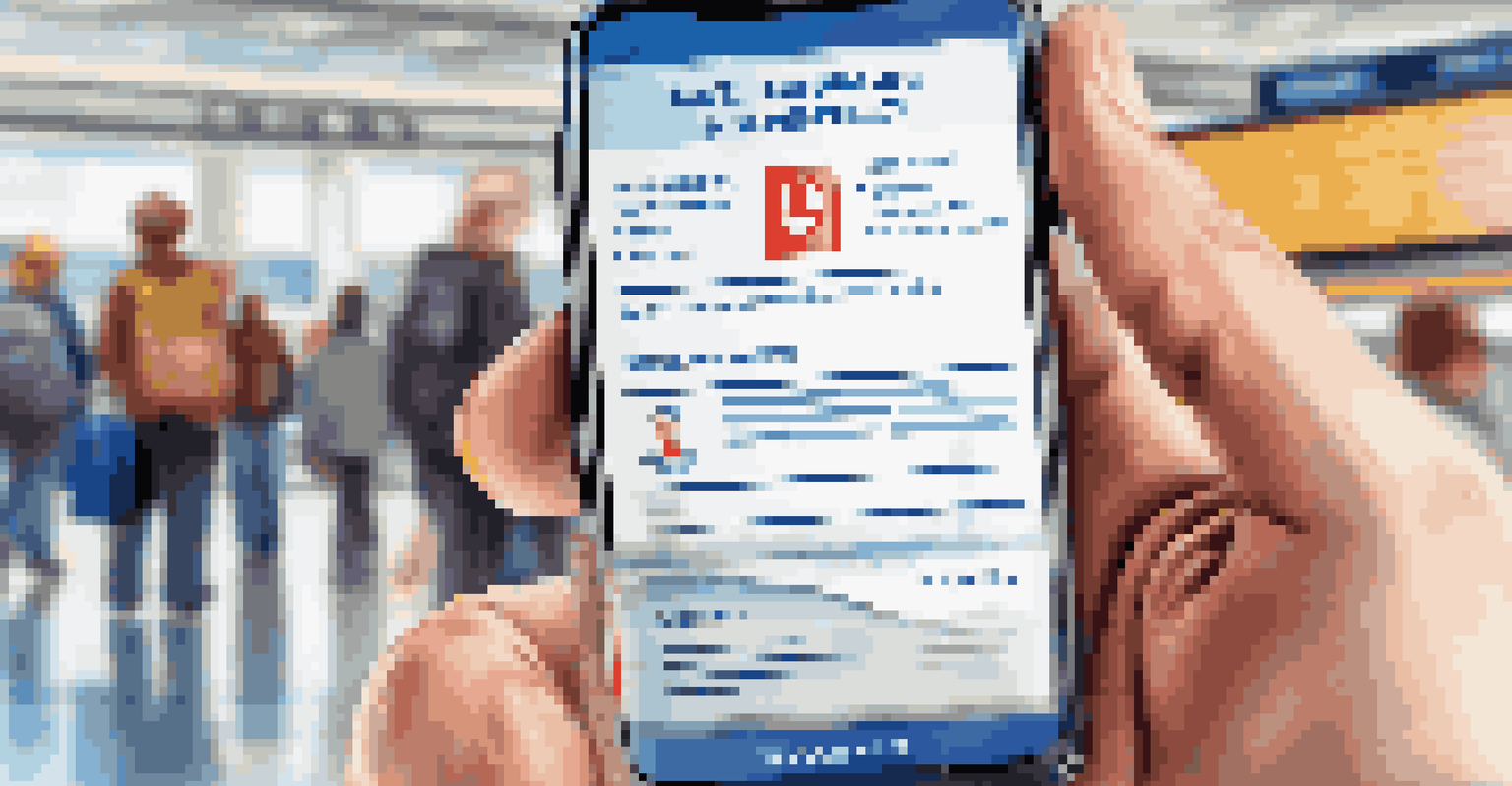Financial Preparedness for Crisis Travel Situations

Understanding the Importance of Financial Preparedness
Financial preparedness is crucial when facing unpredictable travel crises. Whether it’s a natural disaster, political unrest, or a sudden health emergency, having a solid financial plan can make all the difference. It ensures you have the resources necessary to navigate through these challenging situations without added stress.
By failing to prepare, you are preparing to fail.
Imagine finding yourself in a foreign country where flights are grounded and hotels are fully booked due to an unforeseen event. Without access to funds, your options become severely limited, leaving you vulnerable. This is why understanding the importance of financial preparedness can help you maintain control during crises.
By taking proactive steps to prepare your finances, you can travel with confidence. This preparation not only shields you from immediate financial strain but also grants you peace of mind that you can handle whatever comes your way.
Creating an Emergency Travel Budget
An emergency travel budget is a vital tool that helps you allocate funds for unexpected expenses. Start by assessing potential costs you might face during a crisis, such as additional accommodation, transportation, or food. This budget should be flexible and adaptable to various situations, allowing you to respond effectively to any emergencies.

Consider setting aside a specific percentage of your total travel budget for emergencies. For instance, if your overall travel budget is $1,000, putting aside 10-20% can provide a financial cushion when you need it most. This way, you won’t be scrambling to find funds in a pinch.
Financial Preparedness is Key
Having a solid financial plan ensures you can navigate unexpected travel crises with confidence and control.
Moreover, always review and adjust your budget based on the destination and current global events. Keeping your budget updated can equip you with the financial insight necessary to tackle crises head-on.
Setting Up an Emergency Fund for Travel
An emergency fund is a financial safety net specifically designated for unforeseen travel expenses. This fund should be separate from your regular savings and easily accessible, allowing you to act quickly when crises arise. Think of it as a lifebuoy, ready to keep you afloat when the waves get rough.
An investment in knowledge pays the best interest.
Aim to save at least three to six months' worth of living expenses. This amount can vary based on your travel habits and the potential risks in your destinations. Having this fund ready can empower you to make decisions based on safety rather than financial constraints.
Regularly contributing to this emergency fund will also help you stay financially disciplined. Even small, consistent deposits can accumulate over time, ensuring you have a robust backup plan whenever you need it.
Understanding Insurance Options for Travelers
Travel insurance is an essential component of financial preparedness, providing coverage for a range of unexpected events. When selecting a policy, consider aspects like trip cancellations, medical emergencies, and lost luggage. Each of these can lead to significant financial loss if not properly covered.
For example, imagine you’ve invested in a non-refundable plane ticket only to have your flight canceled due to a natural disaster. With travel insurance, you may recover those costs, alleviating some financial stress. Understanding the ins and outs of your insurance policy can provide you with confidence during your travels.
Emergency Budgets and Funds Matter
Creating an emergency travel budget and a dedicated fund can provide essential financial support during unforeseen expenses.
Always read the fine print and ensure you know what is and isn’t covered. This knowledge will help you choose the right policy that meets your individual travel needs and protects your finances.
Keeping Cash and Digital Payment Options Handy
In crisis situations, having access to cash and multiple payment options can be a lifesaver. While digital payments are convenient, they may not always be available due to network failures or technical issues. Therefore, it's wise to keep a mix of cash and credit/debit cards when traveling.
Consider carrying a small amount of local currency for immediate expenses, especially in places where digital payments are less common. For instance, if you find yourself in a remote area, local vendors may only accept cash. This simple strategy can help you avoid situations where you’re unable to make necessary purchases.
Additionally, keep a backup payment option handy, such as a prepaid debit card or a secondary credit card. This layered approach ensures you have the flexibility to handle emergencies, no matter where you are.
Documenting Important Financial Information
In times of crisis, having access to important financial information can make all the difference. Create a document that includes details such as account numbers, contact information for banks, and insurance policy numbers. This information should be stored securely but also easily accessible during your travels.
Consider both digital and hard copies of this information. For example, you might keep a secure digital copy in a password-protected app while also carrying a printed version in a safe place. This ensures you can access it quickly in case of emergencies.
Stay Informed and Prepared
Being aware of global events and having access to important financial information can significantly enhance your ability to respond to crises.
Taking these precautions can save you valuable time and effort when you need to resolve financial matters urgently. It’s all about being prepared so you can focus on what really matters during a crisis.
Staying Informed About Global Events
Being aware of global events can significantly enhance your financial preparedness when traveling. Subscribe to travel advisories or monitor news related to your destination to stay informed of potential risks. This proactive approach enables you to make timely decisions about your travel plans and finances.
For instance, if you learn about political unrest in a country you plan to visit, you may choose to alter your itinerary or postpone your trip. Staying informed allows you to prioritize your safety and financial stability over travel convenience.

Engaging with local news or travel forums can also provide insights into real-time issues. This knowledge can empower you to act quickly and avoid situations that might jeopardize your travel plans and finances.